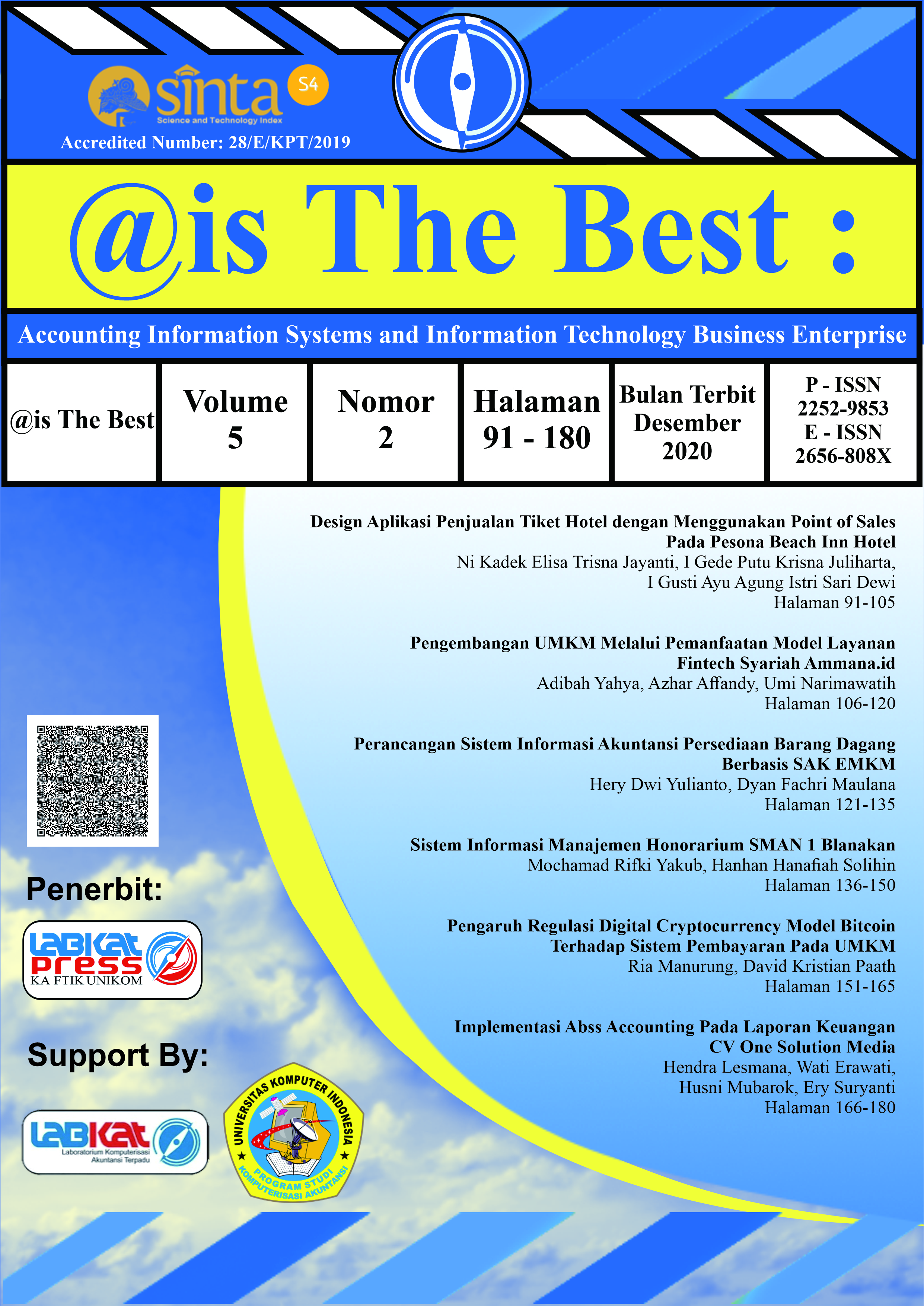MSME Development Through Utilization of the Ammana.id Sharia Fintech Service Model
Main Article Content
Abstract
Financial technology is a technological innovation in the financial sector, various services are provided by startup companies online ranging from payment traffic, insurance, financing to corporate risk assessment. The ease of fintech services is used as a reason for MSME players to develop their businesses, especially in terms of funding and financing. This study aims to examine the ammana.id sharia fintech service model in developing MSMEs in Indonesia. The role of the government, in this case, the Financial Services Authority (OJK), is as a policymaker for financial services operating in Indonesia. The regulations for fintech are OJK Regulation (PJOK) Number 77 of 2016 concerning information technology-based lending and borrowing services or fintech loans. UMKM is one of the fintech users through the P2P Lending service model. The sharia fintech service model, especially P2P Lending, which is used by the Ammana fintech company, has helped many businesses and micro-businesses (MSMEs). Ammana is a sharia-based fintech company, where the fintech service model is in the form of funding and financing provided to MSME entrepreneurs through cooperation with sharia institutions. With the application of the profit-sharing system, Ammana has a successful completion rate of borrowing and borrowing obligations (TKB) of 94.81%. This shows that the higher the TKB, the better the implementation of information technology-based financing services. Ammana has channeled funds according to sharia to 2,285 business and micro actors and has 1,445 funders and 23 billion have been absorbed in the P2P lending service model. Satisfaction with Ammana's performance is evidenced by an increase in the number of investors and borrowers, as well as Islamic financial institution partners who are taking part in these fintech services.
Downloads
Article Details
Section

This Journal is licensed under a Creative Commons Attribution-ShareAlike 4.0 International License

